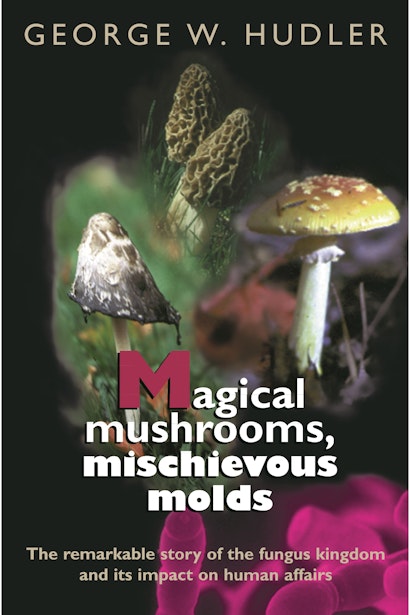Magical Mushrooms, Mischievous Molds


Paperback
- Price:
- $32.00/£25.00
- ISBN:
- Published:
- Nov 5, 2000
- Copyright:
- 1998
- Pages:
- 272
- Size:
- 6 x 9 in.
- 16 color illus. 43 halftones
- Main_subject:
- Princeton Nature
ebook
Mushrooms magically spew forth from the earth in the hours that follow a summer rain. Fuzzy brown molds mischievously turn forgotten peaches to slime in the kitchen fruit bowl. And in thousands of other ways, members of the kingdom Fungi do their part to make life on Earth the miracle that it is. In this lively book, George Hudler leads us on a tour of an often-overlooked group of organisms, which differ radically from both animals and plants. Along the way the author stops to ponder the marvels of nature and the impact of mere microbes on the evolution of civilization. Nature’s ultimate recyclers not only save us from drowning in a sea of organic waste, but also provide us with food, drink, and a wide array of valuable medicines and industrial chemicals.
Some fungi make deadly poisons and psychedelic drugs that have interesting histories in and of themselves, and Hudler weaves tales of those into his scientific account of the nature of the fungi. The role of fungi in the Irish potato famine, in the Salem Witch Trials, in the philosophical writings of Greek scholars, and in the creation of ginger snaps are just a few of the many great moments in history to grace these pages.
Hudler moves so easily from discussing human history to exploring scientific knowledge, all with a sense of humor and enthusiasm, that one can well understand why he is an award-winning teacher both at Cornell University as well as nationally. Few, for instance, who read his invitation to “get out of your chair and take a short walk” will ever again look without curiosity and admiration at the “rotten” part of the world around them. Magical Mushrooms, Mischievous Molds is full of information that will satisfy history buffs, science enthusiasts, and anyone interested in nature’s miracles. Everyone in Hudler’s audience will develop a new appreciation of the debt they owe to the molds for such common products as penicillin, wine, and bread.